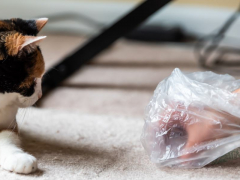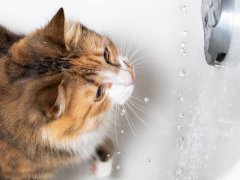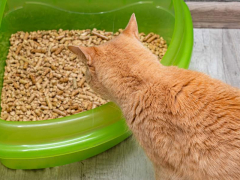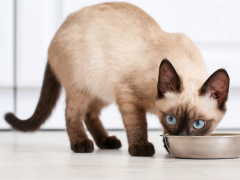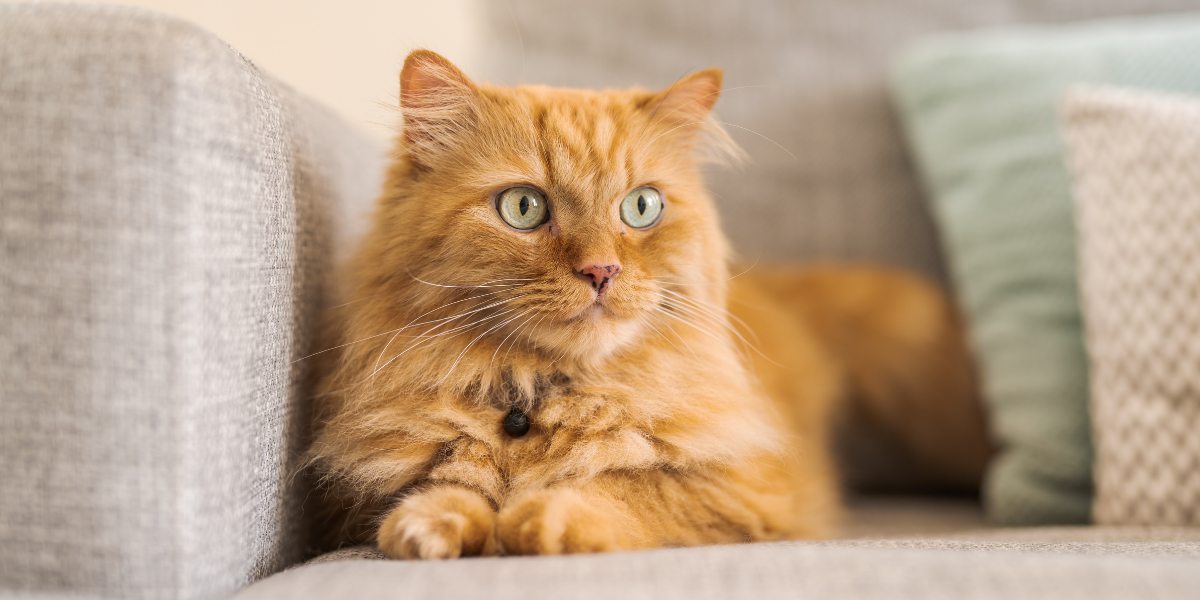
According to the ASPCA, inappropriate urination is the most common behavioral problem reported by pet owners, and around 10% of cats will pee outside the litter box at some stage in their life. Any changes to your cat’s toileting habits can be a worry, not to mention tricky to deal with in your home.
Cats will pee on things around the house if something is wrong. It’s extremely rare for them to do it out of spite or laziness. Let’s take a closer look at the most common causes of inappropriate urination.
1. Litter Box Problems
If your cat is peeing outside the box, it might be because it’s dirty or they don’t like the location. Cats are incredibly fussy, so the litter box needs to be spick and span and placed just right so your cat will want to use it.
The litter box should be placed somewhere easily accessible and quiet. If your cat is peeing elsewhere it might be because they can’t get to the litter box easily or because it’s noisy and busy there. It might also be that your cat doesn’t like the style of the litter box or litter that you use.
If you have several cats, consider how many litter boxes you have. As a rule, you need one litter box per cat, plus one. So if you have two cats, that means three litter boxes. This is to make sure there are plenty of clean places to go, and cats don’t particularly like to share.
2. Marking Territory
Cats are very territorial, and they like their spaces to smell like them. You might have noticed that your cat likes to rub their head around items in your house and on you. Intact male cats often spray urine. This is their way of letting other cats know that this space belongs to them.
Urine is a good way for a cat to mark their territory, and in multi-cat households and entire males, this is a particularly common issue. They might pee on bedding, furniture, or in certain rooms in the house.
It can be tricky to tell the difference between a litter box problem and urine marking. Urine marking typically occurs on vertical surfaces—a cat will usually reverse up to a vertical object like a wall or a tree and spray urine onto it.
Urine marking also tends to have less volume than when they are peeing normally, and it smells very strong. When cats spray they release more than just urine—it contains lots of other chemicals that smell horrible to people but is a cat’s way of communicating with one another.
3. Stress
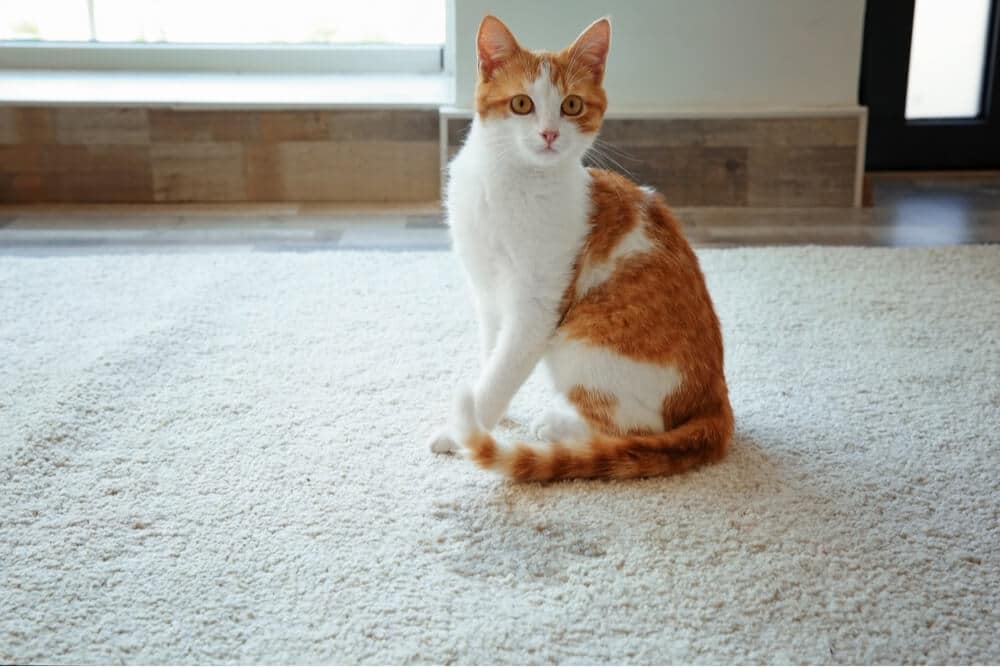
A stressed out cat might pee outside the litter box in an attempt to soothe itself by leaving its scent around.
One of the most common reasons for cats peeing on things is stress. Cats are highly sensitive animals and they like routine and consistency in their environment. Even the smallest thing can upset them enough to do a dirty protest. Peeing on things is your cats’ way of relieving the anxiety, and marking their territory.
Common causes of stress in cats include:
- A new pet
- Visitors in the house
- Moving home
- Decorating and building work at home
- A neighboring cat upsetting them
- A problem with another cat in the house
- Being left alone for long periods
- A change in the feeding routine
- Lack of mental and physical stimulation
- Lack of access to a garden or outside space
4. Health Problems
Medical problems can cause changes in your cat’s toileting habits and often leads to them peeing around the house or having accidents. If you notice any change to your cat’s peeing habits or routine, speak to your usual vet and get your cat checked over.
The vet will ask you about any changes in your home recently or any possible causes of stress. They will examine your cat and might ask you to collect a sample of their urine for testing. This will help them to look for infection or other abnormalities that can explain this behavior.
Common medical causes of inappropriate urination include:
- Urinary tract infection (UTI)
- Bladder stones
- Feline idiopathic cystitis
- Feline lower urinary tract disease (FLUTD)
- Kidney disease
- Osteoarthritis
- Diabetes
- Hyperthyroidism
If a medical condition is diagnosed, then usually once treated your cat will stop peeing on things and go back to their usual habits.
5. Behavioral Problems
If you’ve ruled out health problems as the cause of your cats’ inappropriate urination, and checked the litter box and their stress levels, you might be left feeling a bit stumped as to why this is happening.
There can be other behavioral problems that lead to cats urinating in places they shouldn’t. A qualified feline behaviorist will be able to help you identify your cat’s issues and work on a plan to improve things.
How Can I Stop My Cat Peeing on Things?
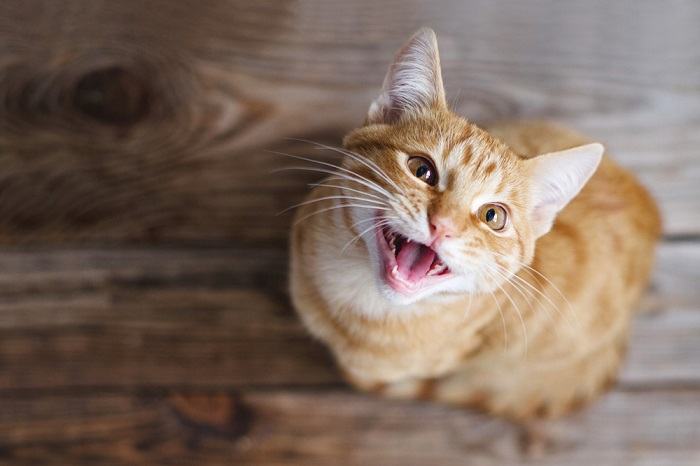
Clean up messes with an enzymatic cleaner to remove all traces of odor, and work to identify what might be triggering your cat.
Finding puddles around your home or cat pee on your carpet and furniture can be so frustrating, and also very smelly! The first and most important thing to do is get your cat checked by a vet to rule out and treat any medical problems, as once treated the issue will usually go away.
But if your cat is stressed, marking their territory, or suffering from a behavioral issue, then there are some other ways you can help and things you can do at home to help your cat relax.
- Use synthetic pheromones around your home to help create a calming environment, for example, a Feliway diffuser
- Use supplements designed for supporting urinary tract issues in cats (always consult your vet first before giving any supplements)
- Keep your cat’s litter box in the same place that is quiet and easy to access
- Change the type of litter to one your cat prefers (this might involve some trial and error)
- Ensure you have enough litter boxes for your cats—one for each cat, plus one extra
- Keep the litter box clean with daily scooping and weekly cleaning
- Ensure your cat has access to a safe outside space if possible
- Provide plenty of toys, games, and scratching posts
- Don’t leave your cat alone for long periods
- Ensure your cat has a safe quiet hiding place and their own bedding
- Neuter your male cat to prevent scent marking/spraying
- Clean up any accidents with an enzymatic cleaner designed to neutralize the smell of cat urine
When treating inappropriate urination problems, never punish your cat. You should not yell at them or rub their nose in their urine as this will only make them feel more stressed and possibly even fearful of you. You should also avoid using ammonia-based cleaners, as the smell of ammonia can actually attract your cat back to that place to pee again.
Final Thoughts
Cats can pee on things around your home for several reasons. The first step to resolving the issue is to identify the cause. Inappropriate urination is one of the most common behavioral problems in cats, so you aren’t alone in this situation.
It’s important to speak to your vet to rule out and treat any medical issues, then take a look at their litter box and other environmental factors to identify the cause of their stress. Once the problem is identified and resolved, most cats go on to return to their normal toileting habits inside the litter box.
Also Read: How To Stop A Cat From Peeing On The Carpet
-
https://www.aspca.org/pet-care/cat-care/common-cat-behavior-issues/urine-marking-cats
-
https://www.hillspet.co.uk/health-conditions/cat/cat-urinary?gclid=CjwKCAjw__ihBhADEiwAXEazJnmqh8sQS1qIhr1XB08GhZkD-HXdR4zzFD-D_MUSKZOm7NiQMuq3DhoC3gUQAvD_BwE&gclsrc=aw.ds
-
https://www.cats.org.uk/cats-blog/why-is-my-cat-urinating-so-often?gclid=CjwKCAjw__ihBhADEiwAXEazJu3vjGK5tLJ8-Qfay8M12c4MIEzUA6FIB5pvXvJuY7OKsNXcgQeXJRoCvYcQAvD_BwE
